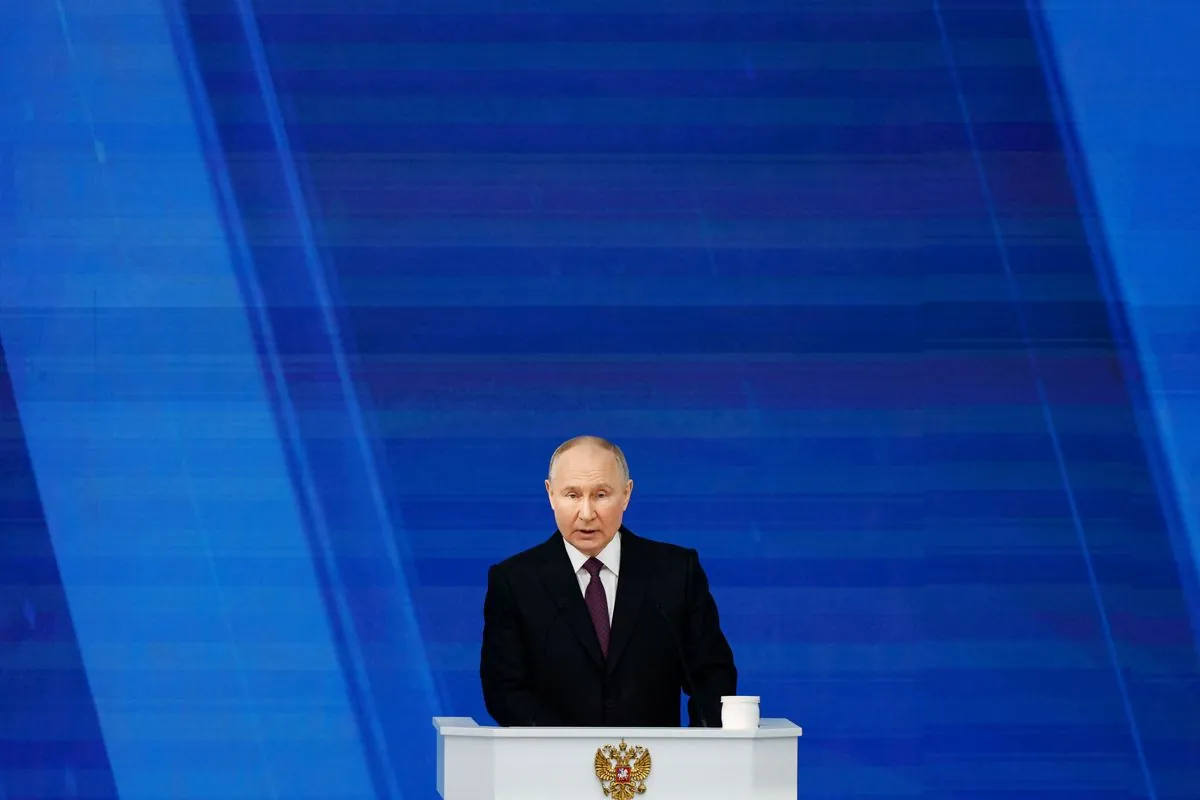Putin's Warning: Storm Shadows in Russia Could Change Conflict Nature
Russian President warns of potential NATO involvement if British missiles strike Russia. Western officials downplay threats, citing Putin's past unfulfilled "red lines" and strategic considerations.

Vladimir Putin has issued a stark warning regarding the potential use of British-made Storm Shadow missiles against Russian territory. The Russian leader stated that such actions would significantly alter the nature of the conflict, implying NATO's direct involvement in hostilities with Russia.
This statement comes as reports suggest Joe Biden may lift restrictions on US targeting systems necessary for Storm Shadow operations. The Kremlin-friendly media has interpreted Putin's words as drawing a "red line."
Western policymakers often express concern over such rhetoric, given Russia's nuclear arsenal and increasing propensity for sabotage within Europe. However, a Western official, speaking to The Telegraph, suggested that Kremlin threats about potential NATO-Russia conflict are exaggerated.
"This would in a significant way change the very nature of the conflict. It would mean that NATO countries are at war with Russia."
The source indicated that Putin likely views the current situation as a major conflict, comparable to those fought between 1914 and 1945. Rather than nuclear escalation, the Russian president is believed to be considering "horizontal escalation," including hybrid attacks on infrastructure supporting Ukraine.

Analysts have observed that Putin's previous "red lines" have often been crossed without significant retaliation. Similar threats were made when the UK considered donating Storm Shadow missiles, which have a range of about 560 km, and when other NATO allies provided weapons such as HIMARS rocket launchers and F-16 fighter jets.
Despite these warnings, there has been no direct conflict between any of NATO's 31 member countries and Moscow. Justin Crump, CEO of strategic intelligence company Sibylline, suggests that Putin resorts to such threats as a last attempt to prevent the provision of advanced weapons systems to Ukraine.
Western-supplied weapons have significantly impacted the conflict. HIMARS were credited with Ukraine's major counter-offensives in Kherson and Kharkiv, while Storm Shadow missiles have weakened Russia's grip on Crimea, which was illegally occupied in 2014.
Many analysts believe it's not in Putin's interest to act on his threats against the West, given the already stretched Russian forces in Ukraine. A formal peace agreement allowing Russia to retain seized territories might be preferable, especially with the upcoming US presidential election in November 2024.
As the situation evolves, the international community continues to closely monitor developments, balancing support for Ukraine with efforts to prevent further escalation.


































